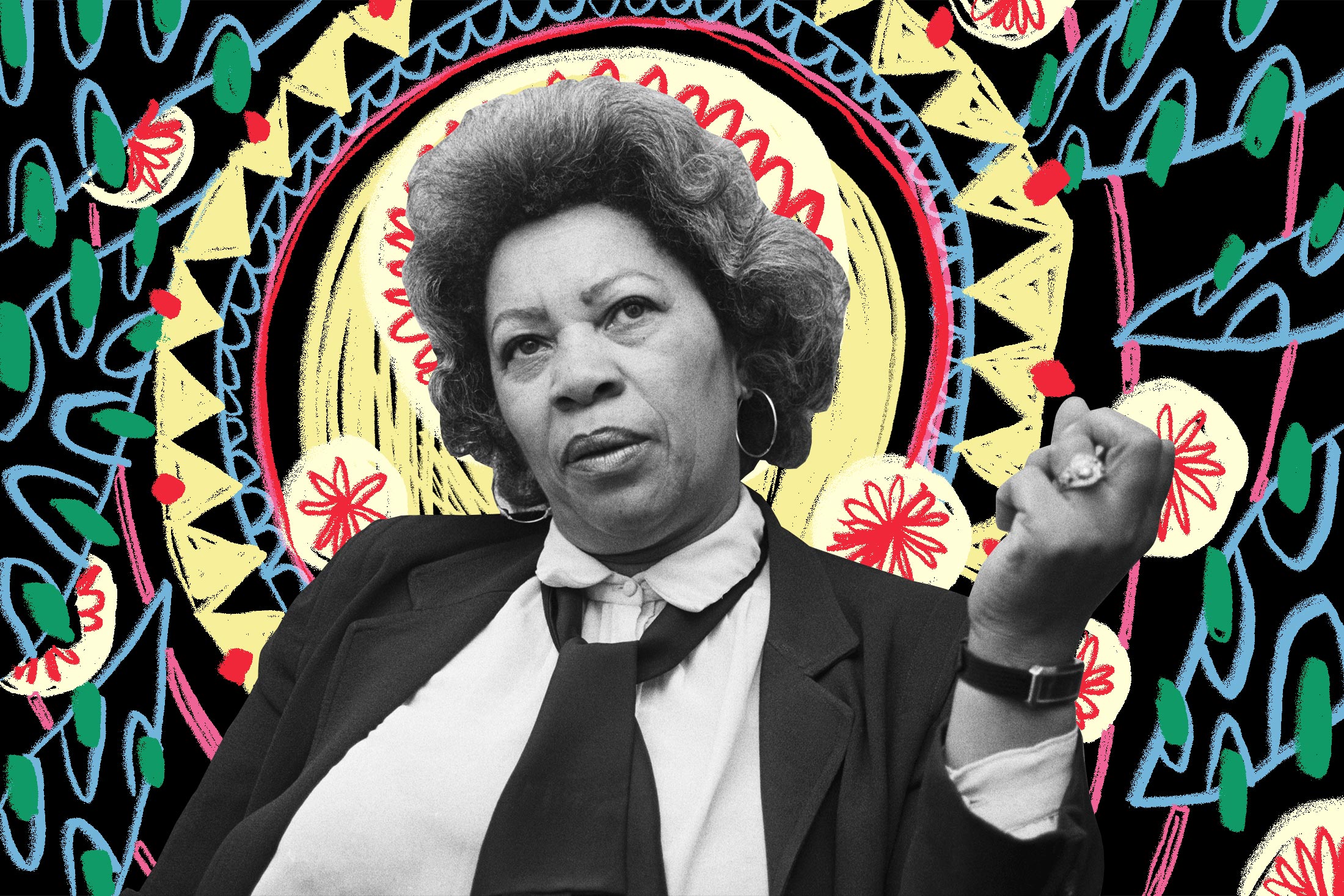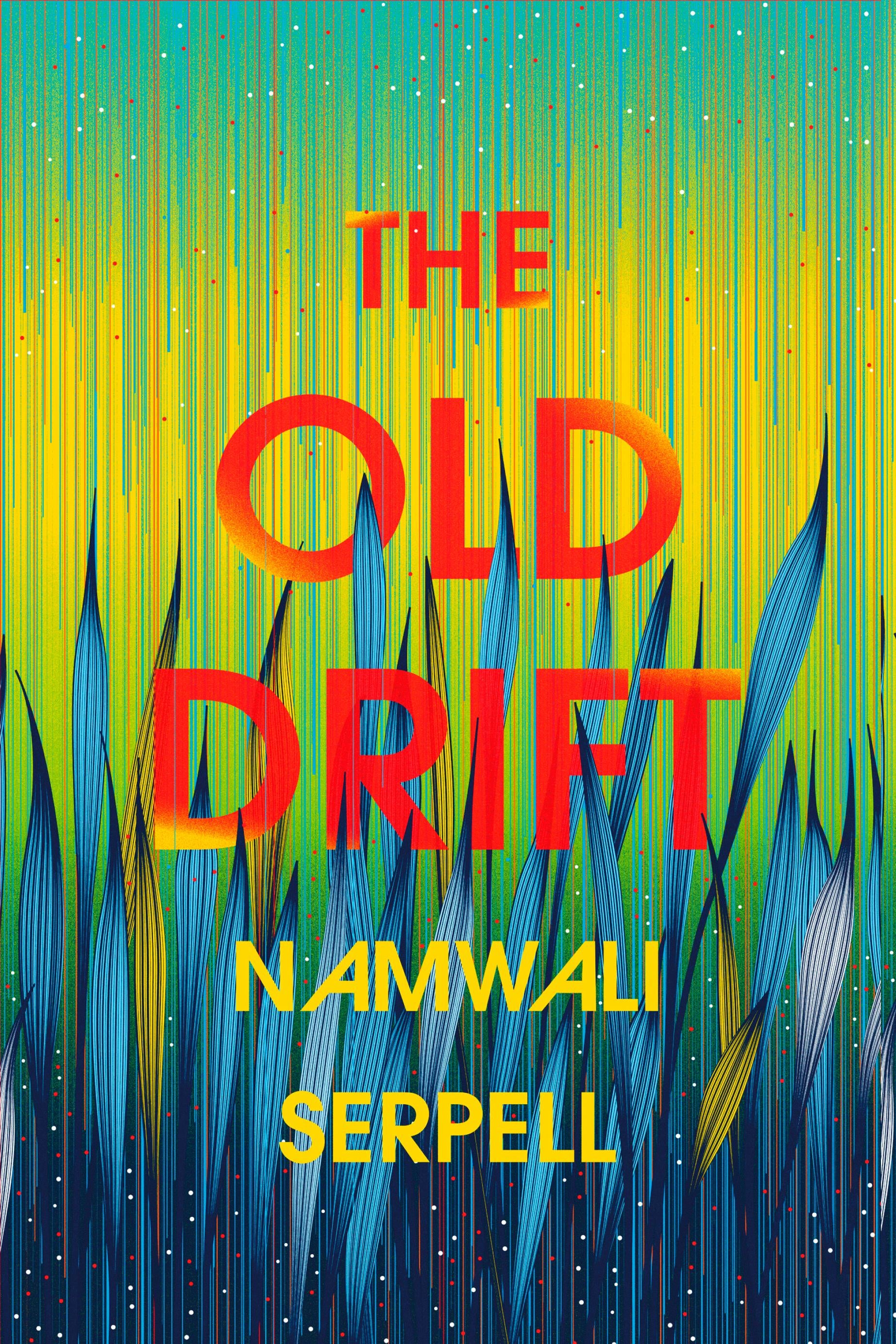More black. I once wrote a short story that did not identify its hero as black until halfway through. My editor queried this: “I assumed that these characters were white.” We disagreed, then fought. Hackles and tempers rose. Sweeping statements were made about genre and obliquity and readerly expectations. I cited Toni Morrison’s short story “Recitatif,” which does not specify either of its two main characters’ racial identities. At one point, the editor wondered if I might want to “pull the story and take a kill fee and move on.” Eventually, my concession: I named some minor characters as white, a reversal of the norm. “I’m grateful for your wherewithal,” the editor later told me.
Moot black. I was recently asked by another publication to contribute an essay about Toni Morrison, who just turned 88. I sent along a piece about revising the chapter on Beloved in my first scholarly book during a strange Easter weekend I spent in Cambridge, England. The editors found this a little niche. Their explanation of what they wanted instead made me uncomfortable. It seemed to me that they were asking for a strong critique of Morrison, or more precisely, of what she stands for, or more precisely yet, of what other people have taken her to represent. One phrase in particular made me ache: They wanted this takedown to come from a black writer. The second piece I sent, a somewhat defensive paean to Morrison and her work, was rejected. “Too academic,” they said. Mute black.
There are many ways to be “difficult” in this world: stubborn, demanding, inconvenient, complex, troublesome, baffling, illegible. Black womanhood is where they overlap. The funny thing is, I know this because of Toni Morrison. Morrison is difficult. She’s difficult to read. She’s difficult to teach. She’s difficult to interview. Notwithstanding the voluminous train of profiles, reviews, and scholarly analysis that she drags behind her, she’s difficult to write about. But more to the point, she is our only truly canonical black, female writer—and her work is complex. This, it seems, is difficult to swallow.
Morrison’s writing is difficult to read because it tends toward the ambiguous. Her magnum opus, Beloved, is a case in point. This 1985 novel revolves around an ethical knot worthy of Greek tragedy: a historical incident in which a fugitive from slavery tried to murder her children rather than let them be recaptured; she managed to kill one before she was found. This act is already hard to fathom. Morrison’s prose makes it even harder. How disconcerting it was as a teenager to open a novel with such a simple, sentimental title and read those unaccountable first lines: “124 was spiteful. Full of a baby’s venom.” In “Unspeakable Things Unspoken,” a classic essay reprinted in her new collection, The Source of Self-Regard, Morrison explains that abrupt opening: “The reader is snatched, yanked, thrown into an environment completely foreign. … Snatched just as the slaves were.”
I’m an English professor, and I’m not ashamed to admit that it took me three readings to understand Beloved at even a basic level. There are certain passages in Beloved that no student I teach ever gets on the first go. (Do you remember how the men get orally raped when Paul D. is working on the chain gang? This is what I mean.) This shouldn’t be surprising; the same is true of our most prized canonical white writers. Faulkner and Joyce don’t get dismissed for their difficulty; they’re praised for it. Morrison’s difficulty as a writer is neither coy nor glibly aspirational. It is an ethos. She’s put it this way: “My language has to have holes and spaces so that the reader can come into it.”
These gaps are made literal in the chapter told by Beloved herself, who is as fragmented and slippery as her sentences: “I am gone now I am her face my own face has left me I see me swim away a hot thing.” Who is Beloved? Is she the ghost of the murdered child? An enslaved woman who was locked up by an abuser? A water spirit from the stream behind 124 Bluestone Road? Everyone in the novel has a different answer, just as everyone has a conflicting judgment of the murder of the child. The point is that we cannot know, we cannot judge. Or maybe the point is that there are ways of knowing that allow these contradictions to coexist in one person. As Morrison once said in an interview: “It was clear to me that it was not at all a violation of African religion or philosophy; it’s very easy for a son or parent or a neighbor to appear in a child or in another person.”
Either way, the ambiguity is indispensable. To be straightforward would defeat the purpose of this insistent questioning, which is, she has said, an “egalitarianism that places us all (reader, the novel’s population, the narrator’s voice) on the same footing.” Morrison’s democratic bent doesn’t pander, however. She doesn’t condescend to your level but challenges you to rise to hers: “My writing expects, demands participatory reading.” As she’s said of Faulkner: “The structure is the argument.”
Morrison herself might reject this comparison. “I am not like James Joyce; I am not like Thomas Hardy; I am not like Faulkner,” she has said. “I am not like in that sense.” If this seems unduly pointed, she shuns comparison with Maya Angelou and Alice Walker, too: “They’re very different writers, very, very different from me.” How? “Well, one self-edits and one doesn’t.” This is, I think, the source of Morrison’s reputation as a difficult personality. On one hand, she refuses to be whitewashed into canonical neutrality. On the other, she refuses to be relegated to her race or gender, not because black womanhood is less than, but because it is often condemned to a narrowness disavowed by other identities. “I’m already discredited, I’m already politicized, before I get out of the gate.”
Morrison has spent her whole career negotiating the Scylla and Charybdis of writing what she calls “nonracist, yet race-specific literature.” She’s willing to accept “the labels” only because “being a black woman writer is not a shallow place but a rich place to write from. It doesn’t limit my imagination; it expands it. It’s richer than being a white male writer because I know more and I’ve experienced more.” On her birthday, I noticed that this quotation had been shared on Twitter by the magazine that published the 2003 profile in which it appeared—with the last sentence excised. Morrison has always been uncompromising about the richness of black life. She put it this way in 1981: “From my perspective there are only black people. When I say ‘people,’ that’s what I mean.”
Two clips of old Morrison interviews have been circulating on social media lately. In both, she’s asked why she writes primarily about black people. (Questions like this are almost inconceivable now, thanks to her.) In one, Morrison explains that she started to write “without the white gaze” after reading writers like Chinua Achebe and Bessie Head, “who could assume the centrality of their race because they were Africans. And they didn’t explain anything to white people.” In the other clip, Morrison is asked whether she’ll ever incorporate white lives into her novels. First, she notes that she has; then, in her gentle, probing voice, she says: “You can’t understand how powerfully racist that question is, can you? Because you could never ask a white author, ‘When are you going to write about black people?’ … It’s inconceivable that where I already am is the mainstream.”
Morrison’s imperiousness never fails to thrill me. I once saw her speak in San Francisco. Quizzed about the homoerotic overtones in her novel of female friendship, Sula, Morrison tilted her head and said: “If I wanted to write about a lesbian love affair, don’t you think I would have done that?” Asked about the black woman who has done more to popularize her work than anybody else, she chuckled: “Oprah Winfrey made me a rich woman, and that’s all I have to say about that.” I watched with a kind of gleeful terror when Morrison appeared on The Oprah Winfrey Show to discuss Paradise, which was a selection for Winfrey’s book club. One reader confessed: “I questioned the value of a book that is that hard to understand.” Morrison’s responses were more withering than anything Jonathan Franzen ever said about Oprah’s Book Club. Morrison declines the idea that because she’s a black woman, she must placate or patronize anyone, even other black women.
I often think the writer she has the most in common with is Vladimir Nabokov, another notoriously difficult outsider who now sits at the center of the American canon. They each evince a hauteur that isn’t defensive but inborn, and cut with a sense of humor. Morrison likes to say she grew up feeling “superior,” like “an aristocrat.” Her titles are soft words—Beloved, Love, Paradise, A Mercy—but as she puts it in Beloved, “love is a killer,” and her novels, like Nabokov’s, brim with cruelty. A mother lights her son on fire. A man locks up a woman to perform medical experiments on her. Poisoning occurs with Shakespearean frequency. Most people don’t realize that Toni Morrison writes horror novels. But she is more invested in genre fiction than you might imagine. Both she and Nabokov are fascinated by Poe, for example, and flirt with melodrama, the fantastic, the Gothic.
Slate has relationships with various online retailers. If you buy something through our links, Slate may earn an affiliate commission. We update links when possible, but note that deals can expire and all prices are subject to change. All prices were up to date at the time of publication.
Is this why her place in the canon still has an asterisk beside it? She had to fight for it. When, outrageously, Beloved didn’t receive a National Book Award, the protest petition had only 48 signatories. Now that she’s appeared on too many lists—she’s the only black woman ever to win the Nobel; in 2006, Beloved was voted in a New York Times poll the best novel of the previous 25 years—I’ve seen people spurn Morrison as obvious or undeserving, as if so much praise surely begs the question. I’m always struck by this contradiction at the core of her reputation. My British grandmother once called Beloved both “perplexing” and “a potboiler.” Morrison incenses people. How dare she be difficult and a black woman? (Can you think of any other black woman renowned for intellectual complexity?) How dare she refuse to comfort or seduce or translate? It cannot be easy to be Toni Morrison.
Yet I aspire to it. Toni Morrison would never accede to a request to explain a short story. Toni Morrison would never write a critique she didn’t believe in. I often think of her words: “All of my life is doing something for somebody else. Whether I’m being a good daughter, a good mother, a good wife, a good lover, a good teacher—and that’s all that. The only thing I do for me is writing. That’s really the real free place where I don’t have to answer.” I, too, yearn for that specific, human, black, female freedom: to feel at ease to be difficult.

